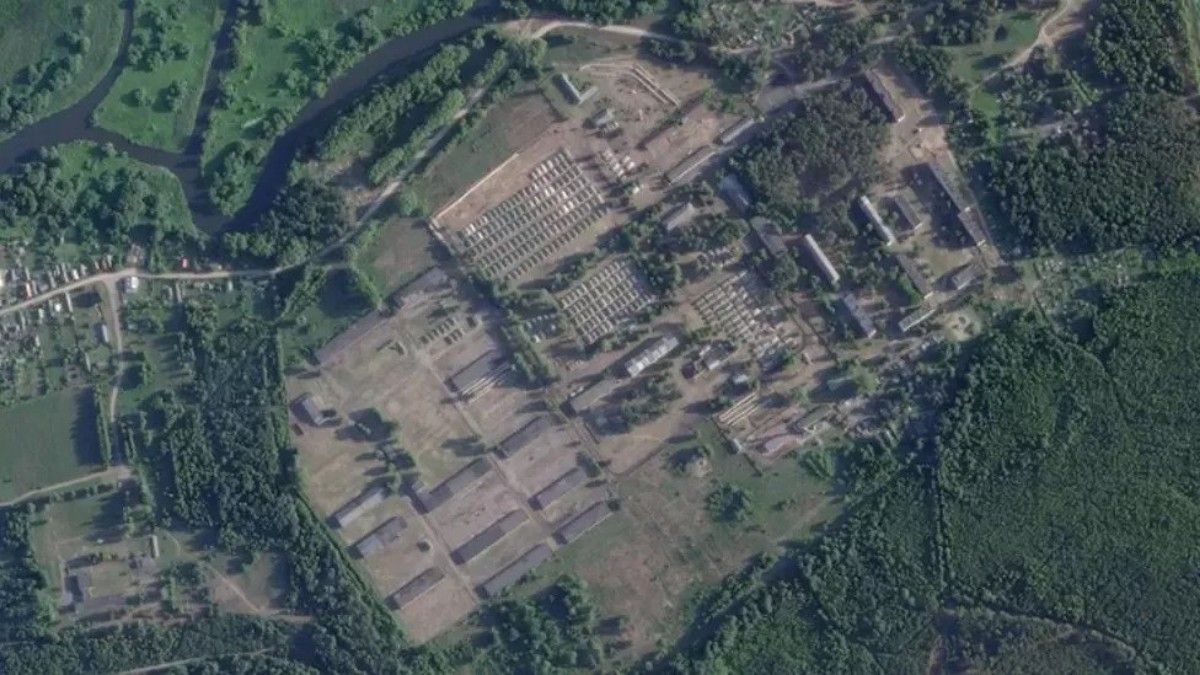Are Belarusian forces incorporating the combat experience of the Wagner PMC to enter the war against Ukraine?
 The situation got worse
The situation got worse
Hundreds of Wagner PMC fighters began to arrive in Belarus and disperse to training grounds, soon to be joined by a new Russian military contingent, expected as part of the strengthening of the Regional Group of Forces. The Belarusian regime is already using the “Wagnerians” as instructors for Belarusian law enforcement agencies and armed forces. The numbers do not yet pose a threat to neighbouring countries, except in the sense of possible provocations, but the situation could change rapidly.

On July 15th a large Wagner convoy of cars and trucks with license plates from the so-called DPR/LPR was spotted in Belarus, moving in the direction of a tent camp in the village of Tsel near Osipovichi. At least 60 vehicles were counted, including pickups, large trucks, vans, and at least 3 buses. The convoy, accompanied by Belarusian traffic police, indicates that the mass relocation of Wagner PMC to Belarus has begun. A few days prior, on July 11th, Yevgeny Prigozhin’s Embraer Legacy 600 plane (registration number RA-02795) flew to Belarus a third time, following previous visits on June 27th and July 1st.
Meanwhile, preparations are being completed at Belarusian training grounds for the deployment of new Russian units for combat coordination and training within the framework of the Regional Group of Forces.
Once Wagner PMC personnel are established at training facilities, special attention will be paid to transfer of expertise to the Belarusian Armed Forces. The Belarusian Ministry of Defence and Wagner PMC have already developed a roadmap to this end.
The “Wagnerians” are already participating as instructors in classes with territorial troops near Osipovichi, based on personal experience and analysis of real combat situations. Earlier it was reported that about 200 fighters of the Wagner PMC may already be in Belarus on the territory of the Losvido training ground in the Vitebsk region, including for training of Belarusian special operations forces, in particular, the 103rd Independent Guards Airborne Brigade.
At the initiative of the Deputy Minister of Internal Affairs, Commander of Internal Troops, Nikolai Karpenkov, negotiations are underway with the Wagner PMC to train special detachments of internal troops. In total, five such detachments of internal troops have been created, two stationed in Minsk and three in Brest, Grodno, and Gomel. Plans exist to form another special-purpose battalion for tasks in the Minsk region. The main purpose of special detachments is to increase unconventional combat capabilities to combat sabotage, reconnaissance, and illegal armed groups.
In the meantime, NATO still has not acknowledged the redeployment of the Wagnerites or the movement of Russian nuclear weapons. Poland estimates the number of “Wagnerians” in Belarus at “several hundred”. Vilnius declares that it is still monitoring the situation, but sees no reason to do anything to further protect the border. The State Border Service of Ukraine believes, that the several hundred “Wagnerians” who arrived in Belarus do not pose a threat, but could be used to destabilise matters near borders.
The commander of the Joint Forces of the Armed Forces of Ukraine, Sergei Naev, noted that Russia uses Belarus as a donor of weapons and military equipment, and its territory as a springboard from which reconnaissance is conducted, but strike groups have not yet been created there. At the same time, one should not underestimate the enemy, and in the event of an appropriate decision, Russia can build up the existing grouping in Belarus using already established infrastructure. Given the possibility of resuming offensive operations from the north, information about Wagner PMC units on Belarusian territory is particularly relevant. Consequently, the threat of invasion from Belarus remains.
Subscribe to our newsletter




Situation in Belarus
Constitutional referendum: main consequences


 Video
Video
How to count the political prisoners: are the new criteria needed?


 Video
Video
Paternalism In Decline, Belarusian Euroscepticism, And The Influence Of Russia


 Video
Video












